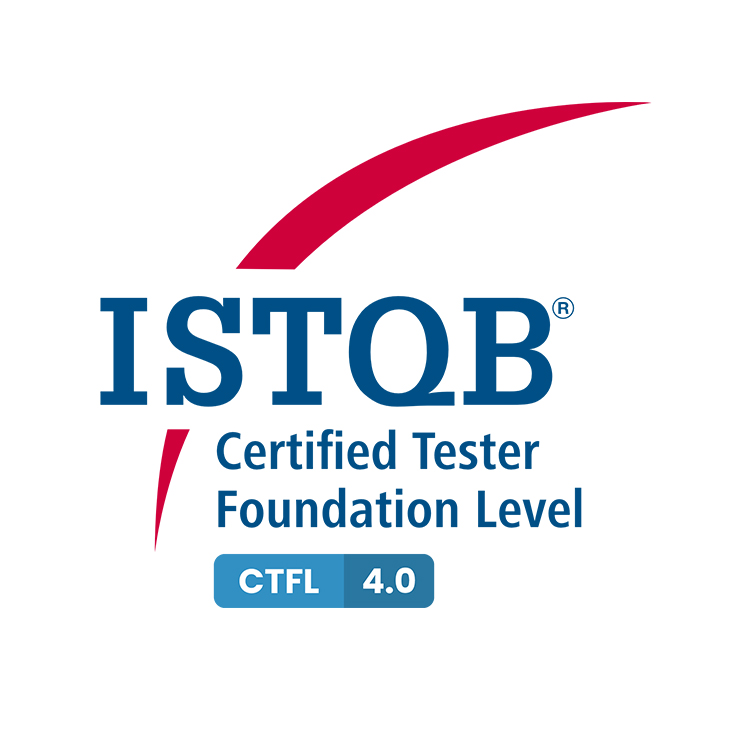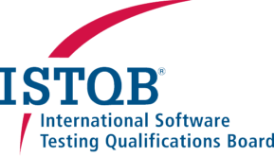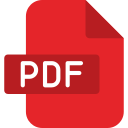
Certified Tester Foundation Level (CTFL) v4.0
Overview
The ISTQB® Certified Tester Foundation Level (CTFL) certification is the cornerstone of essential testing knowledge that can be applied to real-world scenarios. The syllabus provides a comprehensive understanding of the terminology and concepts used in the testing domain worldwide, making it relevant for all software delivery approaches and practices, including Waterfall, Agile, DevOps, and Continuous Delivery.
CTFL certification is recognized as a prerequisite to all other ISTQB® certifications where Foundation Level is required.
Audience
The CTFL 4.0 certification is suitable for anyone who needs to demonstrate practical knowledge of the fundamental concepts of software testing. It is relevant for individuals in roles such as testers, test analysts, test engineers, test consultants, test managers, user acceptance testers, and software developers. Additionally, it is appropriate for those who require a basic understanding of software testing, including project managers, quality managers, software development managers, business analysts, IT directors, and management consultants.
With the ISTQB® Certified Tester Scheme, testing professionals at all stages of their careers can benefit from the breadth and depth of knowledge offered, with the opportunity to pursue higher-level software testing qualifications such as the Core Advanced Levels, Specialist, and Expert Level certifications.
Content
ISTQB® Certified Tester Foundation Level (CTFL)
Fundamentals of Testing
What is Testing
Why is Testing Necessary
Testing Principles
New Activities, Testware & Test Roles
Essential Skills & Good Practices in Testing
Testing Throughout the Software Development Lifecycle
Testing in the Context of SDLC
Test Levels & Test Types
Maintenance Testing
Static Testing
Static Testing Basics
Feedback & Review Process
Test Analysis & Design
Test Techniques Overview
Back-Box Test Techniques
White-Box Test Techniques
Experience Based Test Techniques
Collaboration Based Test Approaches
Managing The Test Activities
Test Planning
Risk Management
Test Monitoring, Test Control & Test Completion
Configuration Management
Defect Management
Test Tools
Tool Support For Testing
Benefits & Risks of Test Automation
Exam Structure
- No. of Questions: 40
- Passing Score: 26
- Total Points: 40
- Exam Length (mins): 60 (+25% Non-Native Language)
Business Outcomes
The Business Outcomes expected of a candidate who has achieved the new Foundation Level certification are as follows:
- Understand what testing is and why it is beneficial
- Understand fundamental concepts of software testing
- Identify the test approach and activities to be implemented depending on the context of testing
- Assess and improve the quality of documentation
- Increase the effectiveness and efficiency of testing
- Align the test process with the software development lifecycle
- Understand test management principles
- Write and communicate clear and understandable defect reports
- Understand the factors that influence the priorities and efforts related to testing
- Work as part of a cross-functional team
- Know risks and benefits related to test automation
- Identify essential skills required for testing
- Understand the impact of risk on testing
- Effectively report on test progress and quality
More Information
Training for the Certified Tester Foundation Level is available from Accredited Training Providers (classroom, virtual, and e-learning). We highly recommend attending accredited training as it ensures that an ISTQB® Member Board has assessed the materials for relevance and consistency against the syllabus.
Self-study, using the syllabus and recommended reading material, is also an option when preparing for the Foundation Level exam.
Holders of this certification will be eligible to proceed to the next stage of the Core stream and take Test Analyst, Technical Test Analyst, or Test Management Advanced Level certifications. They may also choose to follow the Agile or Specialist streams to develop specific skills.

